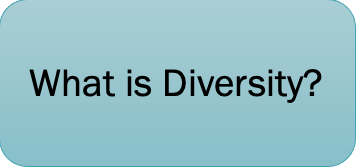Since diversity covers a range of intersectional social identities, the various definitions of diversity are fluid, nuanced, subjective, political, and context dependent. For these reasons, we do not attempt to offer a concrete, all-encompassing definition of the term. Instead, we simple recognize that meaningful conversations about diversity can only happen when people of a variety of identities take part in framing and directing those conversations.
Along with no limiting the definition of diversity to a single meaning, we also resist defining it as the mere presence of individuals with diverse background, experiences, and identities. Such an approach amounts to little more than tokenism, because it focuses on counting people from different social categories without much thought to their inclusion, impact, interactions, and contributions. Instead, we think of diversity in terms of equitable, meaningful representation and participation. This notion of diversity, as described by Fosslien and West Duffy (2019), is the difference between saying that everyone has a seat at the table, versus saying that everyone has a seat, a voice, opportunity, and enough time to speak. Thus, any discussion of diversity must include considerations of power, agency, and equity that are all implicated in meaningful representation and participation.
From Uju Anya and L.J. Randolph, Jr. “Diversifying Language Educators and Learners”. The Language Educator, OCT/NOV, 2019, p. 23.


